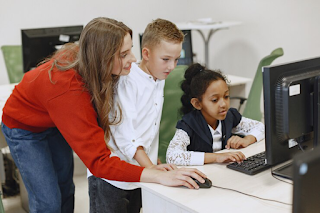What areas of life can student support staff help students with British Council?
Student support staff at the British Council plays a vital part in helping students in different aspects of their lives, ensuring they have a positive and enhancing experience during their time at the institution. From academic direction to individual improvement back, these experts offer valuable help to assist students flourish. In this article, we explore the ranges of life where understudy bolsters staff can offer assistance to understudies at the British Council. Exploring the Comprehensive Student Assistance Services Offered by the British Council 1. Academic Support: One of the essential parts of student support staff is to supply academic help to students. This includes helping students explore the British Council's academic programs, course selection, and registration forms. Student back staff can offer direction on study skills, time management, and successful learning strategies to assist understudies excel scholastically. They may too give assets and referrals for
